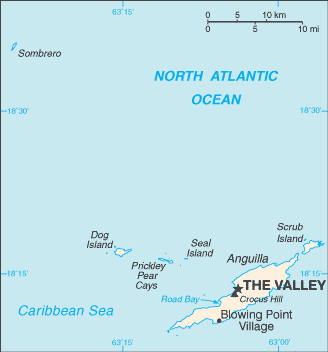 Anguilla Business Information
Anguilla Business Information

Background
Anguilla has been a separate British dependent territory since December 19, 1971, when it was officially “separated” from the islands of St. Kitts and Nevis. With limited natural resources, the local economy has evolved with an emphasis on high-end tourism, a developing system for offshore banking, and lobster and local fishing. According to the World Fact Book, “Increased activity in the tourism industry…has spurred the growth of the construction sector. In the medium term, prospects for the economy will depend largely on the tourism sector and, therefore, on revived income growth in the industrialized nations as well as on favorable weather conditions.”
Although Anguilla has been promoted as a “zero-tax” haven by some, without some source of revenue, no country can provide the necessary infrastructure to ensure security, a clean environment, safe roads, health services, education, water and disaster assistance when needed. The following are examples of Government of Anguilla levies that are essential to providing the necessary services to ensure that Anguilla remains a place worthy of business investment and the luxury tourism that has become the crown jewel of its economy:
Accommodation tax (10% of room rates for hotels and villas)
Business License fees
Business Registration fees
Car registration fees
Customs duties (typically 10 to 30% of the value of all imports to the Island)
Drivers license fees
Real estate taxes and rental fees (if applicable)
Social Security contributions
Transfer taxes on real property
Water (when connected to the public system)
Work Permit fees